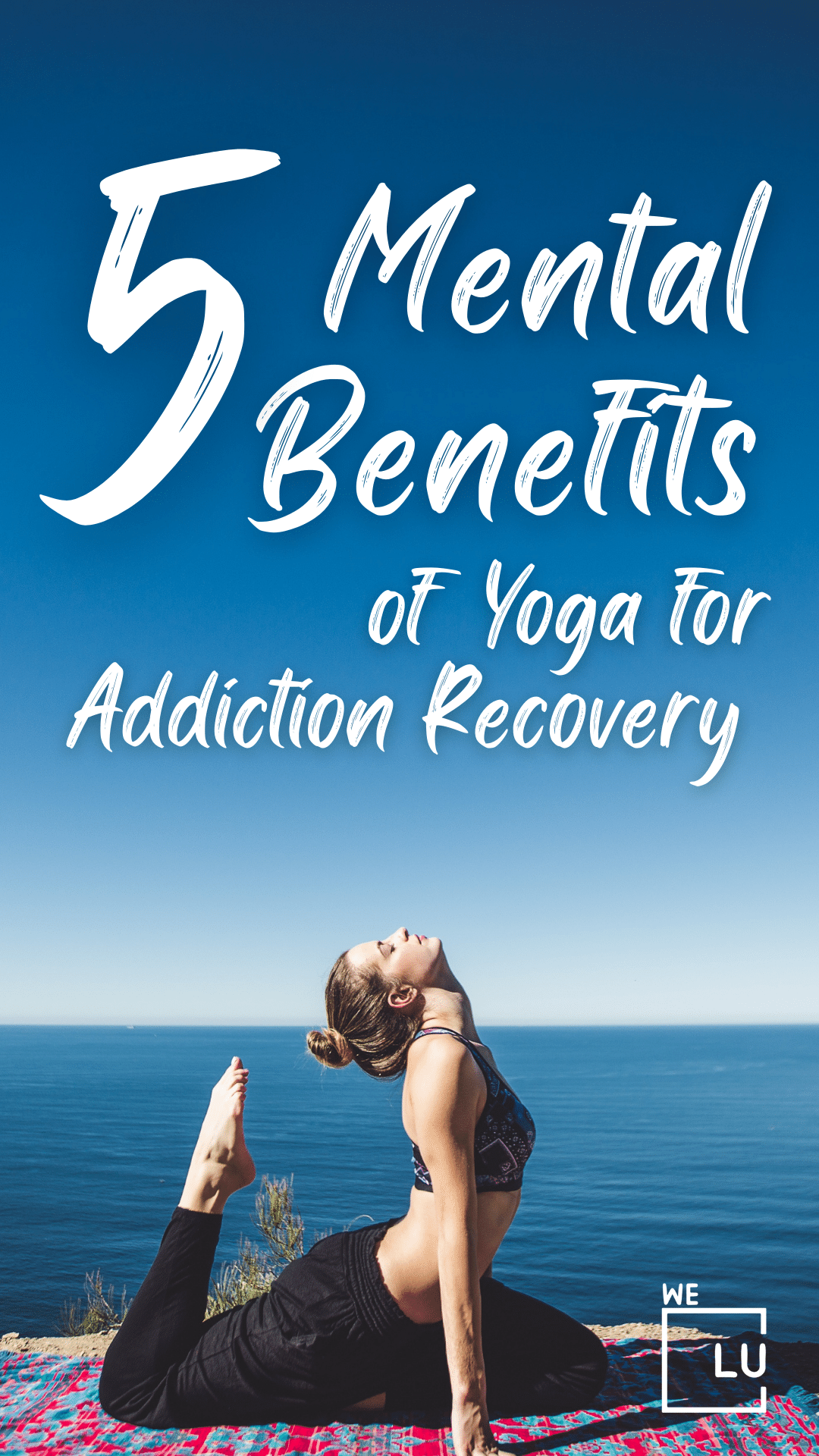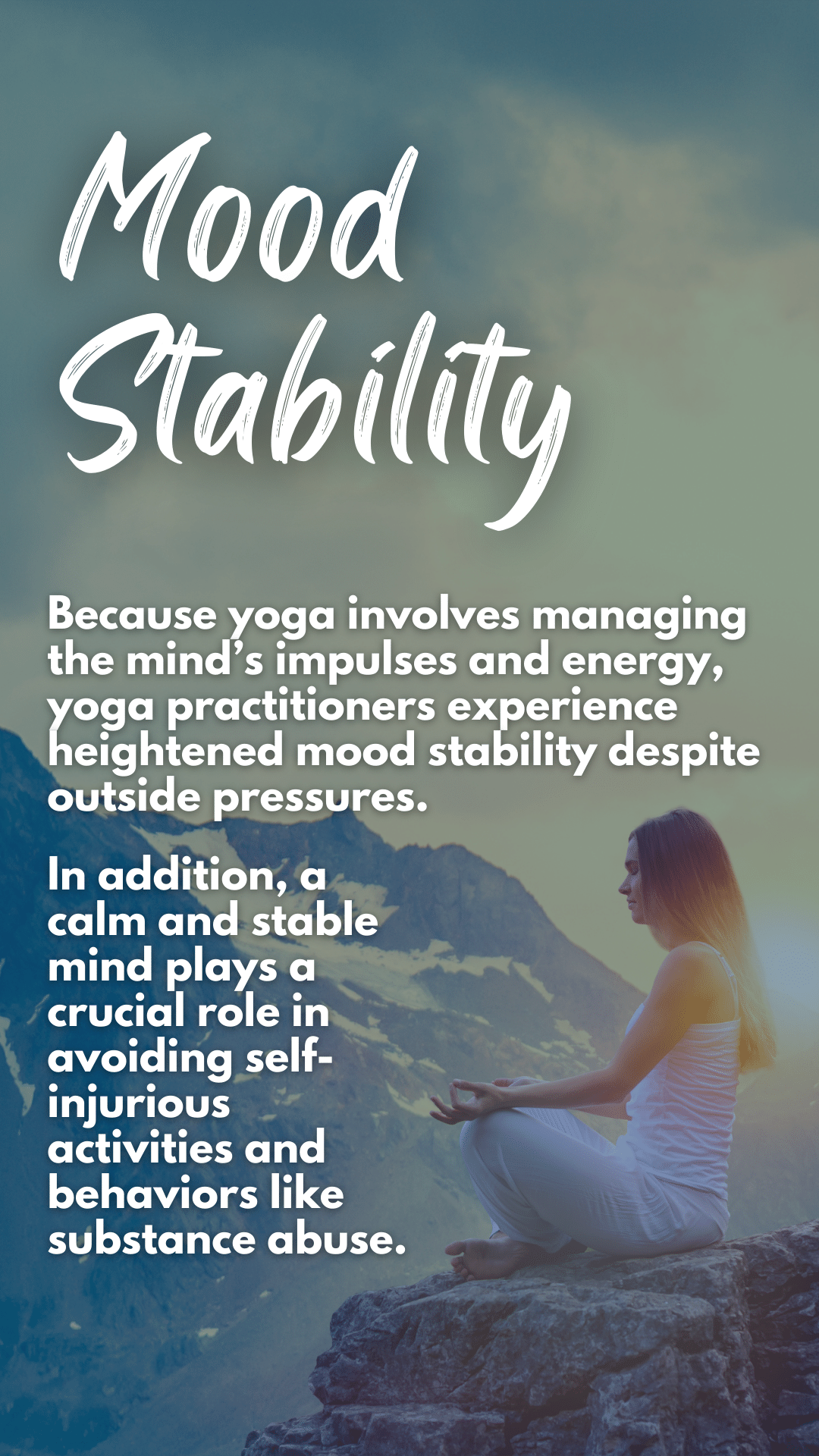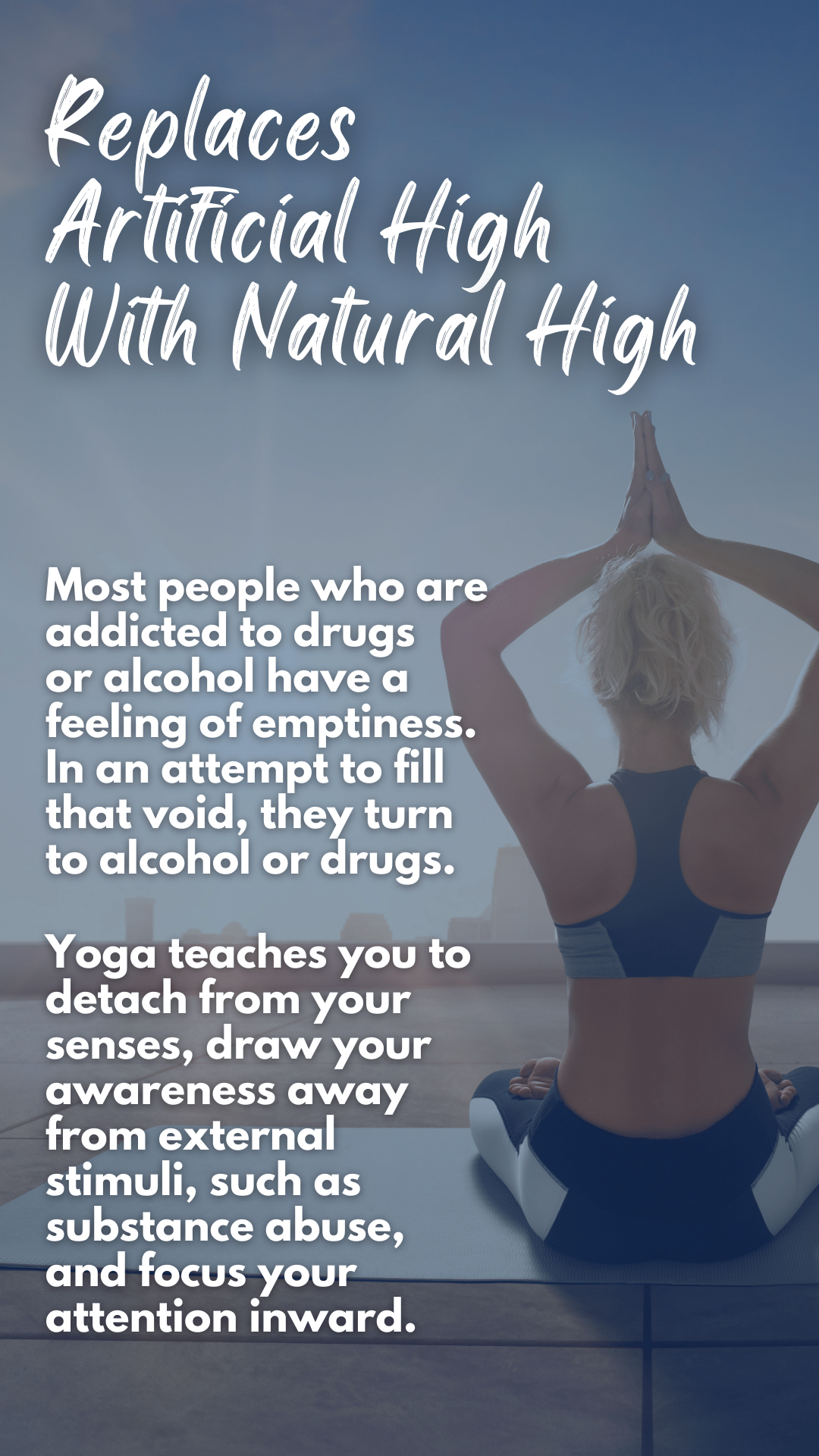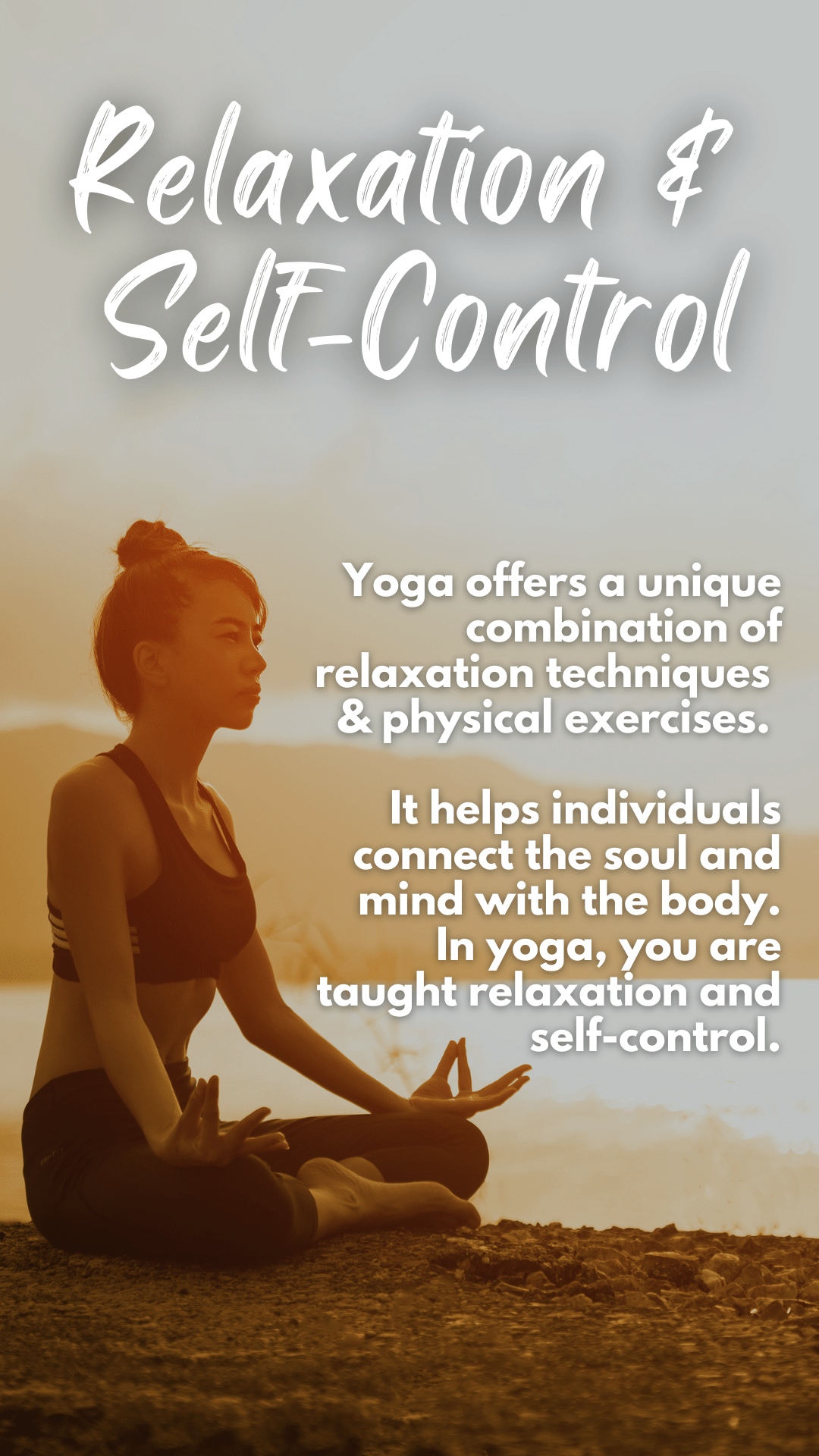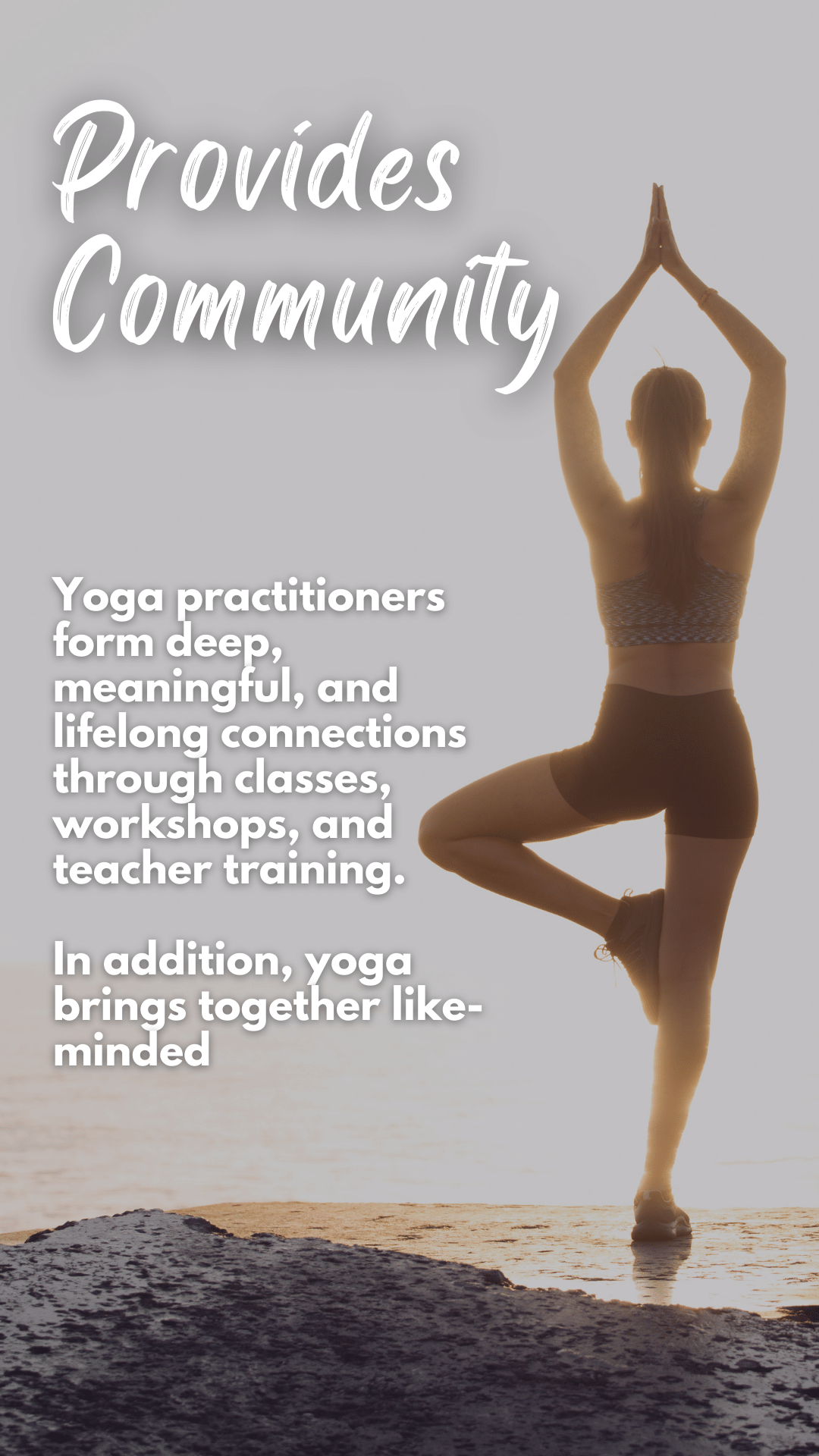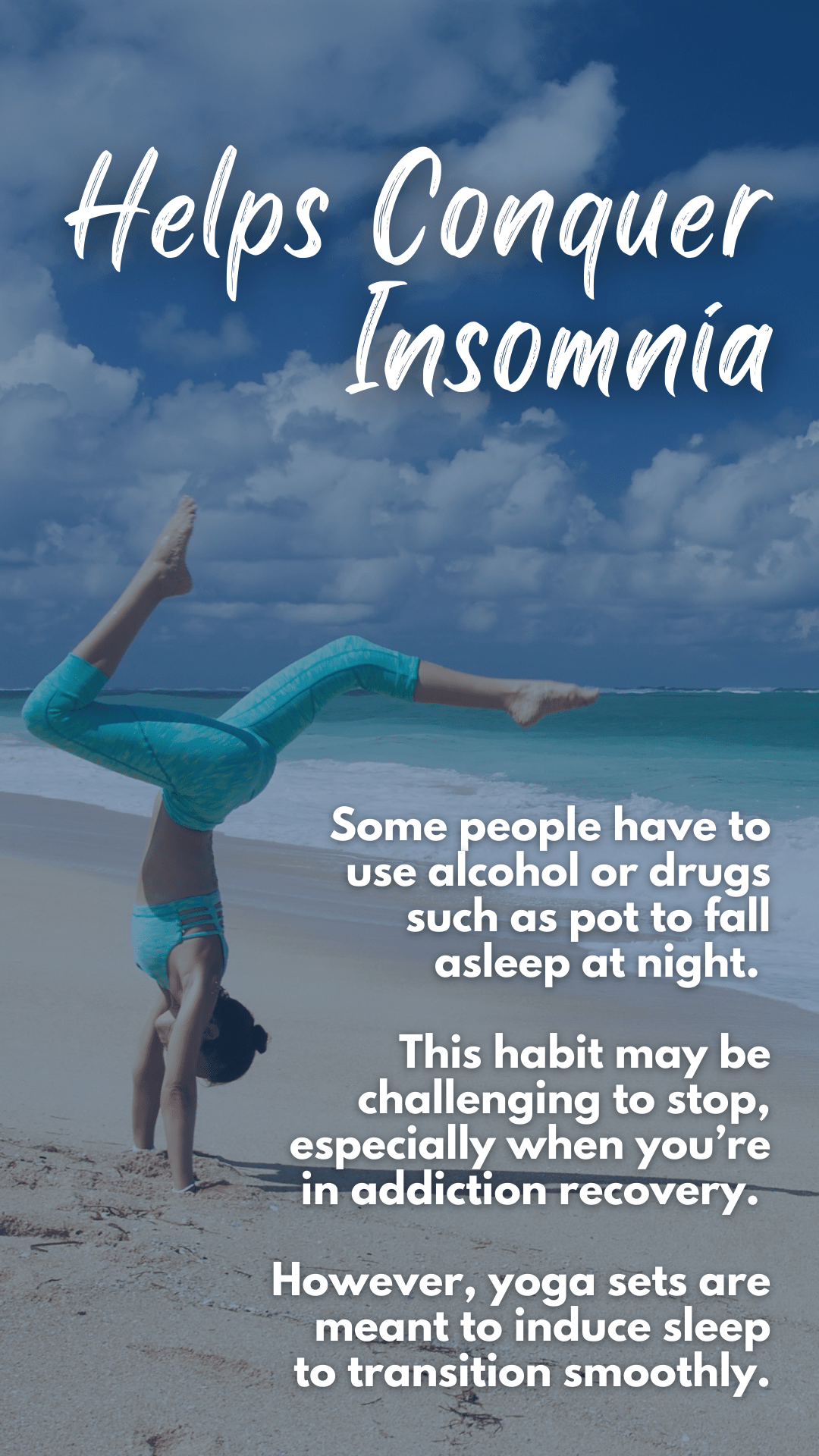The Benefits Of Yoga For Addiction Recovery
About Yoga for Addiction Recovery The combination of yoga for addiction recovery has become very popular as the rise of the opioid epidemic has taken control of our nation. There are many physical and mental benefits of yoga for addiction recovery as well as social benefits. Yoga is a physical, mental, and spiritual discipline originating […]
Clinically Reviewed by Lauren Barry, LMFT, MCAP, QS
Medically Reviewed by Ali Nikbakht, PsyD
Updated on August 5, 2025 — Editorial Policy | Research Policy | Privacy Policy
The Benefits Of Yoga For Addiction Recovery
Clinically Reviewed by Lauren Barry, LMFT, MCAP, QS
Medically Reviewed by Ali Nikbakht, PsyD
Reviewed / Updated: August 5, 2025 — Editorial Policy | Research Policy | Privacy Policy
About Yoga for Addiction Recovery
The combination of yoga for addiction recovery has become very popular as the rise of the opioid epidemic has taken control of our nation. There are many physical and mental benefits of yoga for addiction recovery as well as social benefits. Yoga is a physical, mental, and spiritual discipline originating in India. It is often conducted in a class where an instructor leads physical postures (asanas). In addition, comprehensive classes usually include breathing exercises (pranayama), meditation, and relaxation.
According to the International Association of Yoga Therapists, we can use yoga therapeutically to empower people to improve their health and well-being [1]. In addition, there is now a wealth of scientific support for using yoga to enhance mental and physical health, including addictive behaviors[2].
Anyone can safely practice yoga if a seasoned instructor teaches it. But some practices are more strenuous and may not be appropriate for the elderly or those with physical limitations
Healing Addiction With Yoga
Substance use disorders are major public health issues worldwide, contributing significantly to morbidity and mortality. Despite this, the treatment options for managing these disorders are somewhat limited. The management of substance-use disorders is difficult because patients exhibit symptoms from multiple domains (e.g., cognitive, physical, behavioral, psychological, and so on). Treatment for substance abuse must include a variety of interventions that address each of these domains.
According to the National Library of Medicine study, yoga and related therapies are helpful tools, particularly for people with nicotine use disorders. A potentially effective intervention appears to be yoga and associated therapies. [4]
Skip to:
- About Yoga for Addiction Recovery
- Healing Addiction With Yoga
- Yoga In Addiction Recovery
- Yoga For Alcoholics
- Mental Benefits Of Yoga For Addiction Recovery
- Social Benefits Of Yoga For Addiction Recovery
- Yoga Philosophy In Addiction Recovery
- How Yoga for Addiction Recovery Works
- Yoga for Addiction Recovery Poses
- Tips For Yoga for Addiction Recovery Classes
- Yoga for Addiction Recovery Programs
- Yoga for Addiction Recovery Treatment Center
- Yoga for Recovery Near Me
Learn More:
Yoga In Addiction Recovery
At any stage of the cycle of substance abuse, practicing traditional yoga and mindfulness techniques can help steady attention, build concentration, improve emotion regulation, and promote personal & spiritual growth through self-observation. While performing yoga postures, engaging in meditation, or controlling one’s breathing on their own can help people manage stress and disengage from urges to use substances in the present. The hypothesis is that the best treatment and prevention outcomes may result from utilizing the complete system of adaptive attitudes, perspectives, and self-regulation skills embodied by traditional Hatha yoga (Ashtang yoga) and mindfulness meditation. [5]
Yoga For Alcoholics
Yoga has been discovered to be a practical and well-liked adjunctive treatment for alcoholism. Compared to the conventional therapy-only group, alcohol consumption decreased more in the yoga group. However, there was no statistically significant difference. More extensive studies are required to fully evaluate yoga’s short- and long-term efficacy as a complementary therapy for alcohol dependence. [6]
Get Help. Get Better. Get Your Life Back.
Searching for Accredited Drug and Alcohol Rehab Centers Near You?
Even if you have failed previously and relapsed, or are in the middle of a difficult crisis, we stand ready to support you. Our trusted behavioral health specialists will not give up on you. When you feel ready or just want someone to speak to about therapy alternatives to change your life call us. Even if we cannot assist you, we will lead you to wherever you can get support. There is no obligation. Call our hotline today.
(844) 597-1011Mental Benefits Of Yoga For Addiction Recovery
Yoga can help people in recovery learn how to calm themselves without using alcohol or drugs[3]. Combining mental and physical techniques best results in an individual’s emotional, mental, and physical well-being. Yoga is so helpful to a recovering addict’s mental health that a niche of treatment has been developed to teach yoga basics while in rehab.
Mood Stability: Because yoga involves managing the mind’s impulses and energy, yoga practitioners experience heightened mood stability despite outside pressures. In addition, a calm and stable mind plays a crucial role in avoiding self-injurious activities and behaviors like substance abuse.
Brain scans on people addicted to drugs or alcohol show hyperactivity in certain parts of the brain that are more susceptible to self-interest and vulnerability to behavioral and mood disorders.
Yoga endeavors to free an individual from the idea of self. As such, yoga practitioners have more excellent connectivity to all brain parts. They can attain cerebral stability that the brain of people addicted to drugs or alcohol lacks because their brain activity mainly focuses on satisfying their addiction.
Replaces Artificial High With Natural Ones: Most people who are addicted to drugs or alcohol have a feeling of emptiness. To fill that void, they turn to alcohol or drugs. Yoga teaches you to detach from your senses, draw your awareness away from external stimuli, such as substance abuse, and focus your attention inward. You’re thus able to have a connection with your inner and higher self. Over time, the practice teaches you to rely more on the peace within than outside. That is, your longing for the external pleasures fade, and you become more inclined to go after the internal pleasures.
Relaxation And Self-Control: Yoga offers a unique combination of relaxation techniques and physical exercises. It helps individuals connect the soul and mind with the body. In yoga, you are taught relaxation and self-control.
Provides Community: Yoga practitioners form deep, meaningful, and lifelong connections through classes, workshops, and teacher training. In addition, yoga brings together like-minded people with similar struggles and experiences.
Eliminates Reactiveness: Some people have constant mood swings and easily get angry while recovering. This is because they don’t have control over their reactiveness. Steadily practicing yoga changes all that. It gives you space between your thoughts, awareness of other people’s positions, and the centeredness in your response. It also teaches you that your power lies in your ability to control your reaction and not in the power of defense or words.
Coping Mechanism: People recovering from addiction have a big gap to fill. This is one of the reasons why many recovering individuals relapse for a lack of a healthy and effective coping mechanism. Instead of turning to drugs or alcohol as a means to escape, yoga practitioners practice the art, which is an excellent coping mechanism.
Increased Self-Discipline: Learning to stay away from drugs and alcohol after becoming addicted may prove challenging, but being able to commit to yoga may give you the discipline you require to maintain sobriety for the rest of your life.
Helps Conquer Insomnia: Some people have to use alcohol or drugs such as pot to fall asleep at night. This habit may be challenging to stop, especially during addiction recovery. However, yoga sets induce sleep to transition smoothly, such as kundalini practices, guided meditations, and Vinyasa flows. There is also a practice referred to as Yoga Nidra. This practice uses gradual muscle relaxation to promote yogic sleep.

Get Your Life Back
Find Hope & Recovery. Get Safe Comfortable Detox, Addiction Rehab & Dual Diagnosis Trused Care.
7/365 Line (844) 597-1011Social Benefits Of Yoga For Addiction Recovery
Of course, this is not the only reason yoga has become so popular recently. There are countless causes for yoga’s rise in popularity. But to stay on course, aside from the many mental and physical benefits that greatly improve a recovering addict’s chances of staying sober. There are also social benefits to consider. In addiction recovery, people’s main reason is boredom and finding productive ways to occupy their time. So whether alone or in a group at a nearby facility, practicing yoga will fill up some free time addicts in recovery have.
Someone in recovery must develop a routine, especially in early recovery. Adding yoga to their recovery tool belt provides physical and mental benefits, helps combat boredom, and gives them structure in their day-to-day activities.
Another social benefit yoga provides is the chance to make new, positive friends. So often, someone in recovery struggles to find positive friends. Usually, many of their old friends are using drugs or alcohol, so it is best to stay away from them and make new friends.

Going to a yoga class will allow you to meet new people who are not engulfed in sobriety and can be a great way to take their minds off of addiction and focus on other things in life. Meeting regular people who do not struggle with addiction and talking/laughing about normal issues and topics is a great outlet for recovery.
Yoga Philosophy In Addiction Recovery
Yoga’s ethical and moral codes, yamas (social discipline), and niyamas (self-discipline) can provide organization and structure to live life in recovery. They are behaviors and practices intended to guide participants in relating to others and cultivating inner peace. This information is usually not introduced in a beginner class but it is good to know.
- Yamas: Ahimsa (non-harming), Satya (truthfulness), Asteya (non-stealing), Aparigraha (non-possessiveness), Brahmacharya (maintaining vitality).
- Niyamas: Tapas (purification using discipline), Santosha (contentment), Saucha (purity), Svadhyaya (self-study), Ishvara Pranidhana (devotion to a higher power).
First-class Facilities & Amenities
Trusted Integrated Addiction & Mental Health Rehabilitation Treatment
Rehab Centers TourEstablished Addiction Centers. Serene Private Facilities. Inpatient rehab programs vary.
Addiction Helpline (844) 597-1011Comprehensive recovery success experience, backed by a Team w/ History of:
15+
Years of Unified Experience
100s
5-Star Reviews Across Our Centers
10K
Recovery Success Stories Across Our Network
- Low Patient to Therapist Ratio
- Onsite Medical Detox Center
- Comprehensive Dual-Diagnosis Treatment
- Complimentary Family & Alumni Programs
- Alumni Coaching, Recovery & Personal Development Events
How Yoga for Addiction Recovery Works
Yoga classes are geared toward a wide variety of participants. Therefore, classes offered inside a treatment center may be structured differently than classes provided to the general public.
A Typical Class Format Often Consists Of the:
- A period of sitting quietly
- Instruction in warm-ups and formal postures
- A relaxation period at the end
You may also be instructed in specific breathing exercises and be offered time for meditation.
Yoga for Addiction Recovery Poses
Yoga can be gentle, vigorous, or something in between. Experiment with different classes, styles, and teachers until you find what feels comfortable to you. Some basic postures and a few of their effects are listed below. Postures are listed by a common name followed by the Sanskrit name. Sanskrit is the language of yoga.

- Mountain (Tadasana): Improves posture, creates strength and gives a sense of groundedness (the foundation for all standing poses).
- Warrior I (Virabhadrasana): A posture of strength and stability.
- Child’s Pose (Balasana): Releases tension and encourages feelings of safety.
- Seated Forward Bend (Paschimottanasana): Stretches the entire back of the body and fosters calm.
- Seated Twist (Ardha Matsyendrasana): Energizes the spine and stimulates the liver and kidneys.
- Cobra (Bhujangasana): Increases spinal flexibility and opens the heart and the lungs.
- Simple Sitting (Sukhasana): Promotes calm.
- Savasana (corpse pose): Relieves stress, lowers blood pressure, and reduces fatigue.
Specialized, Accredited, 5-Star Reviewed, Evidence-based Addiction & Mental Health Programs. Complete Behavioral Health Inpatient Rehab, Detox plus Co-occuring Disorders Therapy.
CALL(844) 597-1011End the Addiction Pain. End the Emotional Rollercoaster. Get Your Life Back. Start Drug, Alcohol & Dual Diagnosis Mental Health Treatment Now. Get Free, No-obligation Guidance by Substance Abuse Specialists Who Understand Addiction & Mental Health Recovery & Know How to Help.
Tips For Yoga for Addiction Recovery Classes
- Wear Comfortable Clothing: You do not need special yoga clothes. Wear layers so that you’ll be comfortable at all stages of practice.
- Consider Bringing Your Mat: Most facilities provide mats, straps, cushions, and blankets. But you may want to buy your mat if you think you might be participating in yoga regularly.
- Don’t Eat A Heavy Meal Before Class: A light snack is best if you need to eat.
- Make sure you don’t have any health conditions that could interfere with yoga practice. Get clearance from your medical provider if you have any specific health concerns or limitations.
- Come With An Open Mind: Be willing to ask questions and let your instructor know of any concerns you have.
Yoga for Addiction Recovery Programs
Yoga can be part of a program in a residential treatment center, a high-end rehab, or an outpatient setting. You may experience yoga as part of your treatment’s larger exercise or wellness component. You may be fortunate enough to be offered individualized sessions. As previously mentioned, a yoga brand is linked with 12-step recovery, which may be your introduction to yoga. You have the right to ask about the credentials of your instructor. Some programs will only employ yoga teachers who are members of the Yoga Alliance. This organization is a registering body, so it has no investment in training or educating its members. Ask where your teacher was certified and what their experience is.
Early recovery is a time when you will be developing boundaries and a renewed sense of self-worth. It may feel uncomfortable to ask questions, but you owe it to yourself to develop this ability in a yoga class and your recovery process.
Yoga for Addiction Recovery Treatment Center
Are you or a family member seeking substance abuse treatment and would like to incorporate yoga for addiction recovery? Then, make this your opportunity to reclaim your life at We Level Up. Therapies include addiction yoga for recovery sessions. Call today to speak with one of our treatment specialists. They know what you are going through and will answer any of your questions.
Your call is private and confidential, and there is never any obligation.
Yoga for Recovery Near Me
Experience Transformative Recovery at We Level Up Treatment Centers.
See our authentic success stories. Get inspired. Get the help you deserve.
Start a New Life
Begin with a free call to an addiction & behavioral health treatment advisor. Learn more about our dual-diagnosis programs. The We Level Up Treatment Center Network delivers recovery programs that vary by each treatment facility. Call to learn more.
- Personalized Care
- Caring Accountable Staff
- World-class Amenities
- Licensed & Accredited
- Renowned w/ 100s 5-Star Reviews
We’ll Call You
Sources
[1] International Association of Yoga Therapists. Contemporary Definitions of Yoga Therapy: https://www.iayt.org/page/ContemporaryDefiniti?page: ContemporaryDefiniti
[2] Khanna, S., & Greeson, J. M. (2013). A narrative review of yoga and mindfulness as complementary therapies for addiction. Complementary therapies in medicine, 21(3), 244-252.
[3] NIH – National Institutes of Health: National Center for Complementary and Integrative Health. (2016). Meditation: In-Depth.
[4] J Neurosci Rural Pract. (2018). Role of Yoga in Management of Substance-use Disorders: A Narrative Review. 9(1): 117–122.
[5] Surbhi Khanna, MBBS1,* and Jeffrey M. Greeson, PhD2. (2018). A Narrative Review of Yoga and Mindfulness as Complementary Therapies for Addiction. 10.1016/j.ctim.2013.01.008
[6] Mats Hallgren 1, Karin Romberg 2, Ann-Sofie Bakshi 3, Sven Andréasson 4 (2014). Yoga as an adjunct treatment for alcohol dependence: a pilot study. 22(3):441-5.
